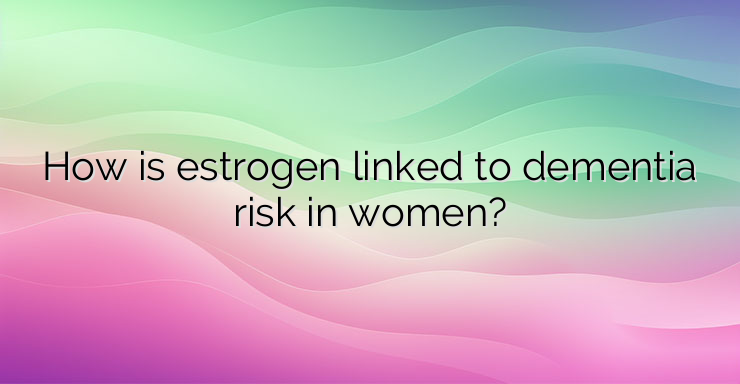Factors that affect levels of the female sex hormone estrogen may be associated with a woman’s risk of developing dementia later in life. A new study has found that early or late onset of menstruation, early menopause and hysterectomy are associated with a higher risk of developing dementia. A lower risk of developing dementia was seen in women who had given birth and those who went through menopause later. Although it appears that factors in a woman’s reproductive health that are linked to changes in hormone levels may be relevant to dementia risk, the exact link is not yet known. The risk of developing dementia increases with age, but we do not yet know whether the risk in women is higher because of their longer life expectancy. It is possible that female-specific reproductive factors may explain some of the gender differences. Estradiol is the most predominant form of estrogen during reproductive life, from the onset of menstruation until menopause, and estriol is the main estrogen during pregnancy. The use of oral contraceptives and hormone replacement therapy can affect estrogen levels. Researchers at the George Institute analyzed data from a total of 273,240 women without dementia registered in the UK Biobank, a large-scale biomedical database. Scientists have found that the risk of developing dementia in women depends on the following factors: Early onset of first menstruation; Late onset of first menstruation; First birth at a younger age; Hysterectomy – especially a hysterectomy without surgical removal of one or both ovaries, or a hysterectomy performed after an ovary has been removed A lower risk of developing dementia is associated with the following factors: Pregnancy; Later onset of menopause. Oral contraceptive use is associated with a lower risk of dementia. The authors suggest that the variation in risk among women may not be related to childbirth, as similar trends were observed between number of children and risk of dementia among men in the same study. The higher risk of dementia associated with early menopause is more pronounced in women of lower socioeconomic status. Social deprivation is likely to be an important factor in dementia risk as well as other aspects of women’s health. More research is needed to understand whether these differences are related to exposure to estrogen, which the body synthesizes itself, or whether hormone administration can affect the risk of developing dementia, the researchers said. References: https://medicalxpress.com/news/2022-04-reproductive-factors-dementia.html https://journals.plos.org/plosmedicine/article?id=10.1371/journal.pmed.1003955


Leave a Reply